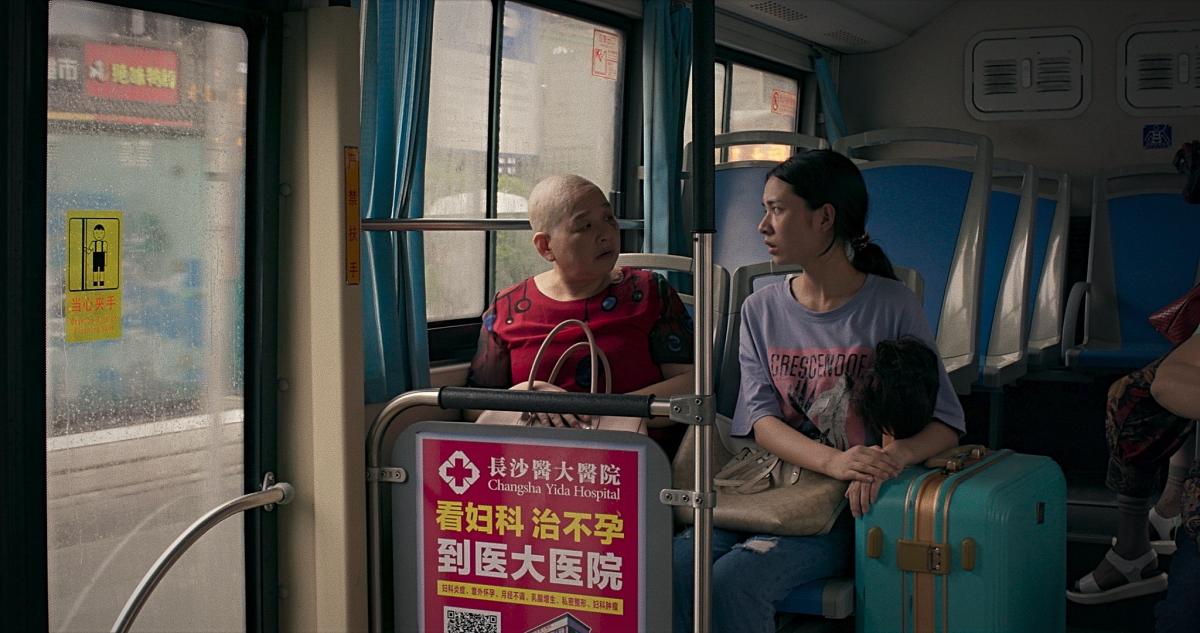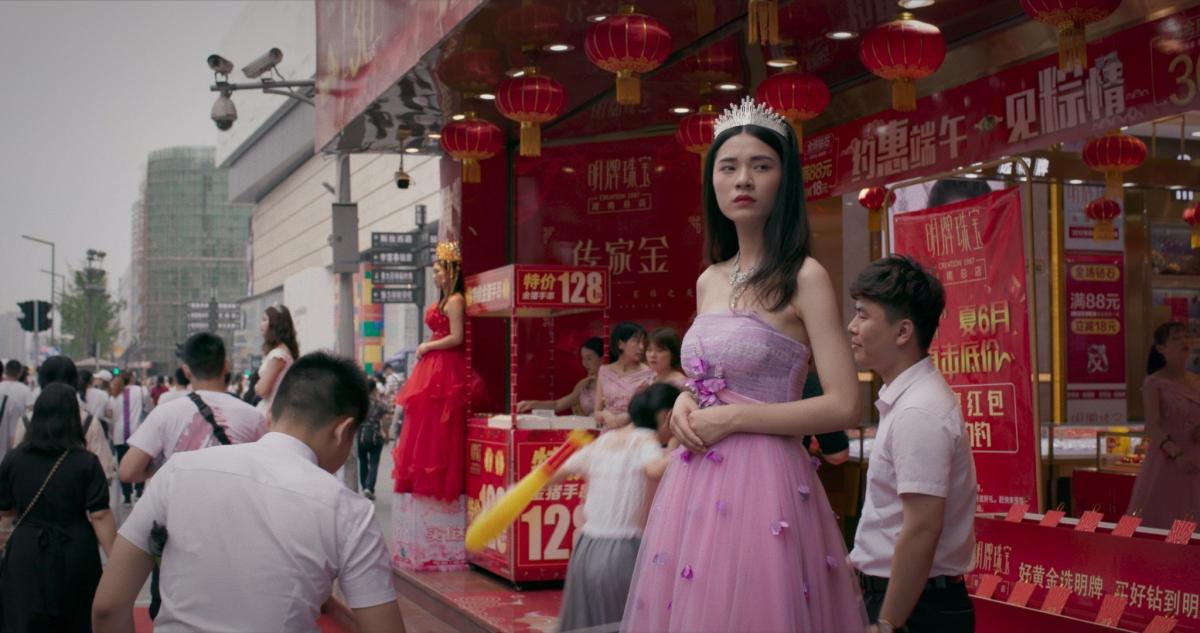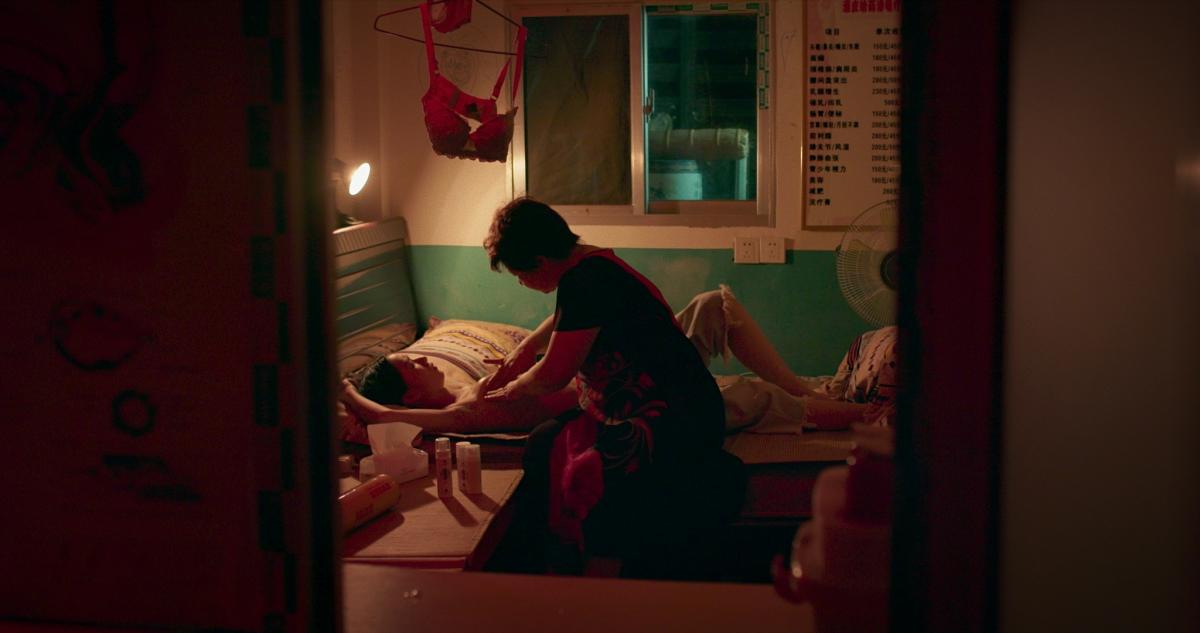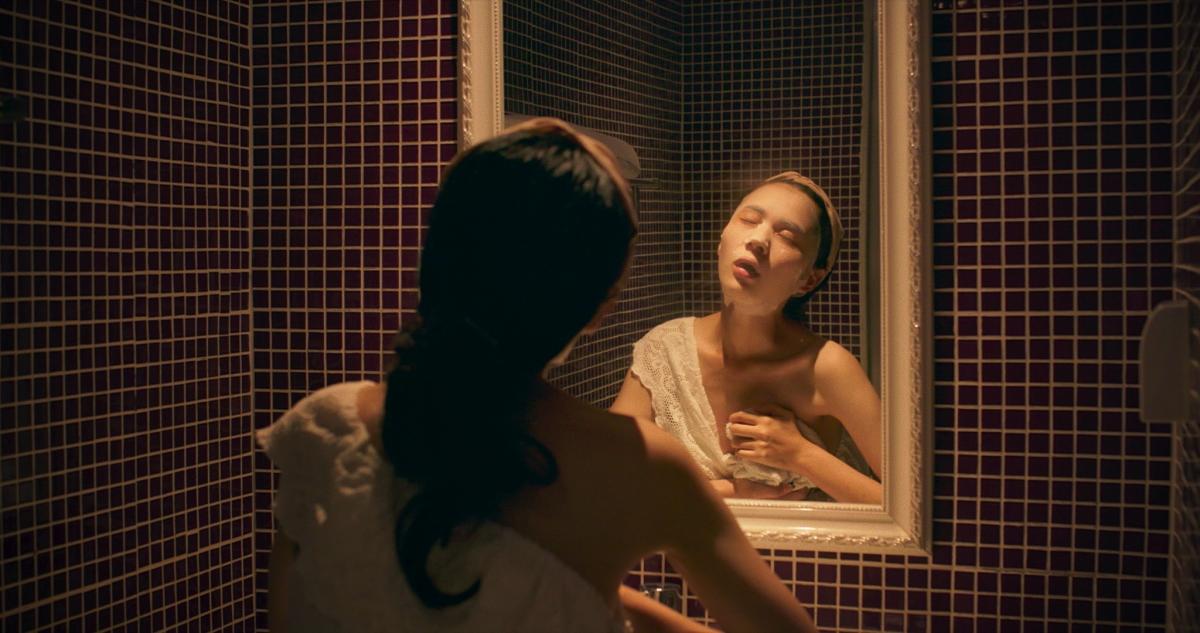On Stonewalling

Both of you have solid careers outside of, or on the fringes of, your partnership and Ryuji is an accomplished cinematographer (A Family Tour, alongside his own directorial efforts). How do you see Stonewalling, your latest collaboration?
Huang Ji: Ryuji and I are from different countries, but when making movies together, when making a life together, our differences allow us to view people and situations from different perspectives. And so we decided to use ten months to shoot Stonewalling, and use the perspective of time and its changes to help us find the character and film’s essence.
How did your collaborative relationship start?
Huang Ji: In 2005, Ryuji was in China shooting his first film, Ling Ling’s Garden. He asked me to take a look at his script, and I really liked the choices the characters made in the ending.
Ryuji Otsuka: I saw the documentary Huang Ji shot in her sophomore year, and saw that the way she looked at people and life was special, and so I was curious how she would react to the script I wrote.
Huang Ji: After shooting Ling Ling’s Garden, we went to my hometown to shoot my graduation film The Warmth Of An Orange Peel. That’s when we started working together, and have ever since.
How do you work together? Who does what?
Ryuji Otsuka: Step 1: After the night has become quiet and dark, we lie in bed and Huang Ji tells me her observations and discoveries she has collected from her everyday life. And I take these elements and look for perspectives and begin to build a story.
Step 2: We begin to do research into the topic and interview those who live those lives. In the majority of interviews, we empathize with the vitality of the people and build their experiences into the film, and invite them to act in the film.
Step 3: On the set itself, Huang Ji takes care of the actors and their delivery, and I am responsible for the mise-en-scene. Afterwards, we review the material we’ve shot and restructure the story from there.

Stonewalling is the third part of a series made up of Egg and Stone and Foolish Bird, which all deal with sexual awakening, girlhood / young woman-hood and independence.
All of them feature Yao Hong gui who rarely works in film outside your films. Can you talk about your relationship with her, and how has that evolved as she herself has become an adult? How did you first meet?
Huang Ji: When we shot Egg and Stone I scouted all the schools in my hometown before I found her. Her parents were economic migrants who had left her in their hometown (commonly referred to as “left-behind” children).
I could tell by her body language and the look in her eyes that she had locked herself up in her inner-world. We decided to shoot according to her rhythm. We observed her in everyday life; as she began to understand womanhood and experience her sexual awakening; her encounters with others and society. From her lived experience, we built a series of films focusing on female sensuality, identity and independence.
You mentioned in a previous conversation that it was important to you that the character of Lynn is not very bright, an average girl. Why was that a point to note?
In media, women are often portrayed as in-control and aware of what they are doing. Smart, conniving… But I think women do not have an innate ability from day one to absorb, analyze and act on what their bodies go through. Women need the physical lived experiences of their bodies to grow their understanding of themselves. I wanted to show Lynn as a very average girl facing a difficult situation. And in that difficult situation, which is largely out of her control and unplanned, we watch her face her predicament equipped only with her do-it-yourself instinct and hard work. This is female power.
The family is seems very middle-class and ordinary. Can you also give us a bit of context on how to understand this class? The class divide and income disparity is very high in China and most often we see films depicting the poorest and the richest sections. Where does this family fit in the economical structure?
We didn’t think of the film from a class perspective because social and economic class definitions in China are very muddled. This is a family that lived off of the father’s skill and labour, which had a limited effect on status and income. And so the mother decides to invest in micro-businesses to gain more wealth, autonomy, and higher social recognition.

Your parents play the role of the Lynn’s parents. How did you broach this to them, and what did they say?
I was also a left-behind child all my life. I lived in my parent’s clinic during the shoot, which I had never done before, not for a long period of time in any case. And though the character inside the film is Lynn, I thought that if I got my parents to act in the film, I could watch them and their relationship with their daughter. I think they also thought, “it’d be like we were with our daughter.”
What did they think of the experience? And how true to their relationship did you write the characters?
They were really worried they wouldn’t do a good job. But the relationship was hard to write… we developed it out of living together and shooting what we observed.
Let’s talk about Vitality Cream. I believe this is based on your mother’s own interest in this? How prevalent are multi-level marketing schemes in China and why did you choose to highlight this?
This wasn’t originally in the script. At that time, multi-level marketing was still very popular. In 2019, when TikTok exploded onto cellphone screens, everyone was influenced by the reels on Tiktok and it spread quickly through existing social media circles and payment apps. There was a feeling of an abundance of opportunity that had to be pursued with maximum passion and aspiration for expansion.
And the issue of ovum donation?
I had read a long time ago of a woman who sold her ovum to buy an iPhone. I became interested in how college-aged women spent money and how they made decisions about their own futures.
And of the gig-economy?
We interviewed a lot of college-aged students. These young women were happy to spend their own money and invest in themselves to achieve validation from society. They all wanted to make money. But college students could only make money or gain experience by working jobs, or taking on part-time positions outside of their field of study for the opportunity to make more money.
In your director’s note, you mentioned that a driving force to the idea behind the film is your daughter asking, “why did you have me.” Can you elaborate?
Our daughter is very curious about why she could come to this world. When she asked me this question, I had to think about it because it’s not something you can answer offhandedly. I carried this question with me the entire time we were making the film, and I hope that, through the film, she can find her answer.
Could you also give us some context of abortion —which seems like a very normalised option — in China. The historical significance is very different from the West?
Family planning was a fundamental national strategy between 1982 – 2015. My mother is a gynaecologist, and so since I was small I’ve witnessed the physical and mental distress forced abortions have on women. This is how I see the history of abortion in China.

This text originally appeared in the EPK of Stonewalling.
With thanks to Pearl Chan and Good Move Media.
Images from Stonewalling (Huang Ji & Ryûji Otsuka, 2022)
State of Cinema 2022 / Wang Bing takes place on Sunday 18 December 2022 at 19:00 in Bozar, Brussels. You can find more information on the event here.

